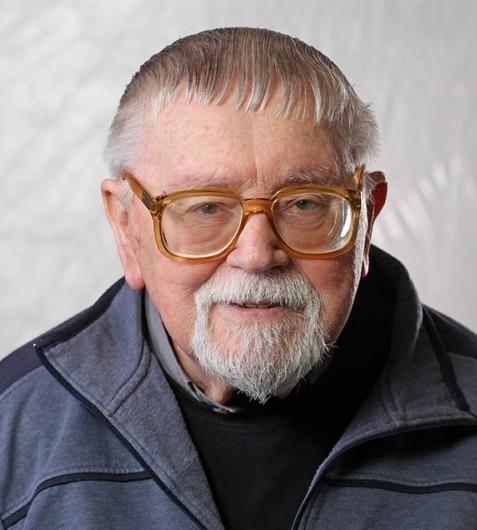Daniel Comboni
Comboni Missionaries
Institutional area
Other links
Newsletter
In Pace Christi
Ellinger Anton
Anton’s childhood was marked by the bitter experience of being illegal and being expelled. He was born on 9 September 1938 at Milowitz – today called Milovice – in southern Moravia (The Check Republic), just ten kilometres from the Austrian border. During the time of National Socialism, the German minority held all the power in the country. Seven years later, the situation changed completely and there was a terrible vendetta. The German-speaking population, who had lived there for centuries, was savagely driven out of their territory and towards the Austrian border at the end of May 1945. Among those people there was his grandmother and his mother and her four children, one of whom was Anton, then just seven.
Finally, having crossed Austria, they reached Germany where they found lodging in the little village of Hohenrot, in the district of Künzelsau. Anton’s father was then a prisoner of war in France. After he was freed and with the help of the Red Cross, he succeeded in tracing his family. In their new environment, the refugees first lived on the margins of society and experienced rejection by many but, at the same time, they were noticed and helped by others. Such experiences were later to help Fr. Anton to be sensitive towards the situation of the people in South Africa during the time of apartheid.
The village of Hohenrot was not far from the town of Bad Mergentheim, where the Comboni Missionaries had a seminary which Anton entered in 1949. Having finished primary school, the students went to the Josefinum seminary in Ellwangen. After his final exams (1959), Anton did the novitiate in Bamberg and Mellatz, where he took first vows on 29 September 1959, and studied philosophy and theology in Bamberg and in Rome where, on 18 December 1964, he made his final profession. He was ordained priest on 29 June 1965 and celebrated his first Mass with great solemnity in his adopted town. The feast marked the complete integration of all his family into his new fatherland.
While still a student, Anton showed remarkable talents, especially in learning languages. In Bamberg and later in Rome he specialised in Old and New Testament Studies, learning several ancient oriental languages such as Aramaic, Ancient Syriac, Georgian and others. His treasure, in his private collection of books, was the many editions of the Bible in different languages and a large number of dictionaries. He knew the Our Father in 25 languages. To take a break from his work he would relax by opening a Russian grammar!
Immediately after his ordination, Fr. Anton was assigned to the minor seminary of Saldaña (Spain), teaching Latin, Greek, English and History. The students appreciated his intelligence and his linguistic knowledge but dealing with youngsters was not his suit. For this reason, he left, happy and content, for the mission in South Africa.
There, in a very short time, he mastered not only the two official languages of the country – English and Afrikaans – but also the three African languages, Zulu, Shangan and Sotho, that were spoken in the diocese of Witbank. He afterwards learned Xhosa, spoken in the diocese of Kokstad where the South African province had taken two parishes. Besides his pastoral work in different parishes, he accompanied the younger missionaries in their study of the languages and he dedicated himself to the translation of books, to study and to the Church.
In 1995, after 22 years working in South Africa, he was assigned to his original province to accompany and teach the “missionaries for a limited period” who were leaving for the mission. In 2007 he suffered a stroke that tested him not only physically but also psychologically.
For the last months of his life he was confined to a wheelchair and had dialysis twice a week. At his request, the dialysis was discontinued as he felt it was time to meet his Maker. He died on 1 March 2020 at Ellwangen hospice, situated a short distance from our Comboni house.
(Fr. Reinhold Baumann, mccj)

